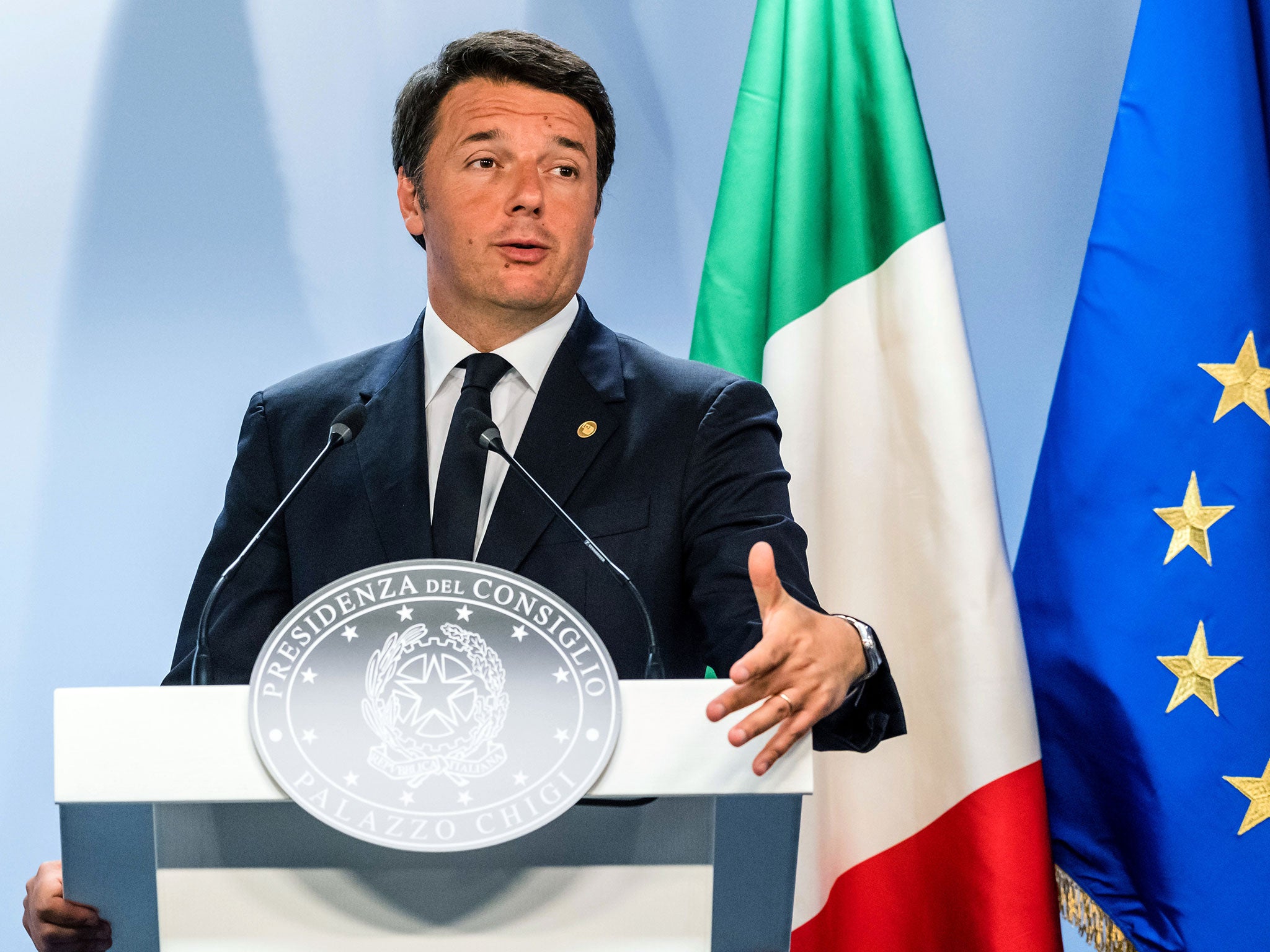Italy’s referendum: What will it mean for the euro?
Investors reeling from democratic shocks in Britain and the US are worried about Italy’s future in Europe’s monetary union

Investors reeling from democratic shocks in Britain and the US are worried about Italy’s future in Europe’s monetary union. They’re concerned that a defeat for Prime Minister Matteo Renzi in the December 4 constitutional-reform referendum would undermine the nation’s fragile political stability. Yet pulling Italy out of the euro doesn’t seem to be an imminent threat because it would require cross-party political backing as well as a tortuous legislative process.
1. Why are markets worried?
A defeat for Renzi, who proposed the vote and initially pledged to resign if the result didn’t go his way, could lead to early elections and a rise in support for the populist Five Star Movement. This party has pledged to carry out a referendum on whether Italy should stay in the euro area. Some investors are already predicting the end of the European Union, let alone the single currency. “We think the EU will break and that Italy will leave the euro,” said Jim Smigiel, a US-based money manager at SEI Investments Co. “Until a while ago this was just unthinkable, implausible, but we’re starting to see the wheels in motion, at the very least.”
2. Just how anti-euro is Five Star?
The Eurosceptic party has been actively campaigning for a referendum on exiting the single currency. Five Star’s Luigi Di Maio, vice-president of the lower house, said that if the party achieves power, it would push for an advisory referendum on euro membership. Di Maio hasn’t been clear about what he would want to replace it, saying in an interview with Repubblica that he favors “a euro at two speeds or a national currency.”
3. So why are investors’ fears seen as overdone?
Because a euro exit would take time and complex negotiations. As Britain discovered with the Article 50 court case, leaving the EU - or part of it - isn’t as straightforward as might be imagined. “The idea that Italy is going to leave the euro the day after the referendum, or even quite some time after, is really exaggerated,” said Antonio Villafranca, a Europe analyst at the Italian Institute for International Political Studies. Even if early elections were called after a Renzi defeat, Five Star’s chances of getting into power would depend on changes to the electoral system. Winning an election might not be enough because the party “could have a hard time finding enough allies to form a parliamentary majority,” said Villafranca. Finally, there are legal hurdles to quitting the EU.
4. What are the legal hurdles?
The Italian Constitution bans the abrogation of international treaties via a popular vote, so a constitutional amendment might be necessary even before calling a referendum. That amendment would require a two-thirds-majority vote by both houses of parliament, and possibly yet another referendum just to clear the way for the one on euro membership. And even if Italians voted “yes” to quitting, the result could still be blocked by the Constitutional Court, one of the country’s supreme courts.
5. How bad would the market reaction to a euro exit be?
The political intention alone would face a market backlash, according to JPMorgan Chase & Co. economists. “Any credible noise about euro exit would induce capital flight and severe market turmoil, so that market pressure might force parties that campaigned for euro exit to quickly revise their plans,” London-based economists Gianluca Salford and Marco Protopapa said in a note. Markets are showing stresses even ahead of the December 4 referendum because of what it might unleash. In addition to the euro’s more than 3 percent slide this month to the lowest level since March 2015, heightened risk is also signaled by Italy’s 10-year bond yield climbing above 2 percent for the first time in more than a year.
6. Do Italians want to leave the euro?
Apparently not. A poll published November 21 by La Stampa, and carried out by Community Media Research and Intesa Sanpaolo SpA, found that only 15.2 percent of the population were in favor of leaving the single currency, with 67.4 percent declaring themselves true single-currency believers.
7. So there’s nothing to worry about?
These are just the known unknowns. What is certain is that Renzi losing next month’s referendum would mean political and economic turmoil. Just how much is your call.
Bloomberg
Join our commenting forum
Join thought-provoking conversations, follow other Independent readers and see their replies
Comments